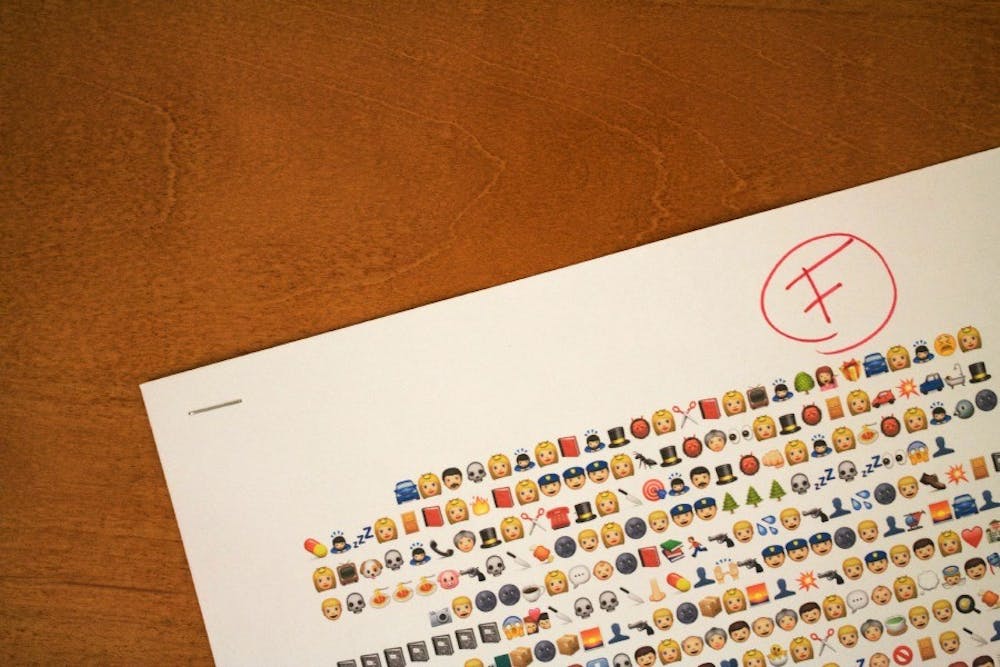Photo by A.J. Newberry
By Alana Hallett, For The Miami Student
Whether glued to smartphones, or their laptops in class, students are usually connected to social media in some way. The constant influence of 140 character tweets, hashtags and texting slang makes us wonder if these habits have an effect on the way students use English, both inside the classroom and out.
Pew Research showed in 2008, 50 percent of teens said they sometimes use informal writing styles instead of proper capitalization and punctuation in their school assignments. In a 2013 study from re:fuel, 86 percent of students reported they use Facebook regularly.
"Language use is evolving, and technology is impacting that, but I see it in small ways, like not capitalizing 'I.' That's something I can teach them to fix," said Miami English professor, Christine Alfonsi.
Writing is a significant part of students' everyday lives. For college students, punctuation and capitalization is especially important, considering that errors on resumes can make a student look unprofessional.
Pew Research showed 50 percent of teens said their schoolwork requires writing every day; 35 percent said they write several times a week.
However, still, students claim they separate their social slang from formal writing in school.
"I feel like I catch myself using slang when I'm speaking, even sometimes in a professional setting," sophomore Laylaa AbdoulKarim said. "But not when I am writing papers for school. That's formal, and I just subconsciously know to write grammatically correct."
The use of technology is growing, especially for college students. Platforms like Microsoft Word, which autocorrect misspellings, punctuation and grammatical errors, can easily cover up students' mistakes. According to a recent study college explorer study from refuel, college students spend 14.4 hours of multitasking on across devices in pursuit of entertainment.
"The biggest issue I see withstudents' writing is that students are often multitasking and just not giving their writing the time and attention it needs to be clear, focused, and correct," Alfonsi said. "Writing is definitely a process, and few of us can turn out a beautifully written paper or blog post without feedback, revision and editing. Having a constant source of entertainment and communication at our fingertips can be powerful, but it can also be a huge distraction."
Social media is not the only distraction in students' lives. Digital media as a whole, including gaming platforms, and online streaming platforms all influence students' academic performances. Therefore, as more media evolves, students' habits begin to as well.
"The English language is also constantly evolving, and I see social media's influence as part of this evolution," Alfonsi said. "It's not necessarily a terrible thing, but an inevitable thing that happens with language."

